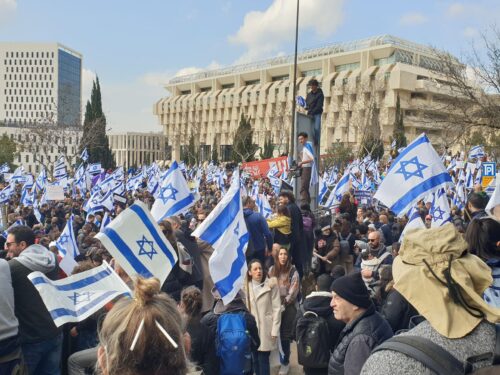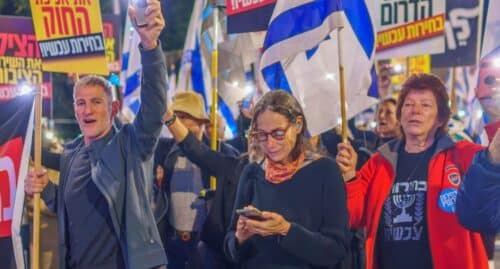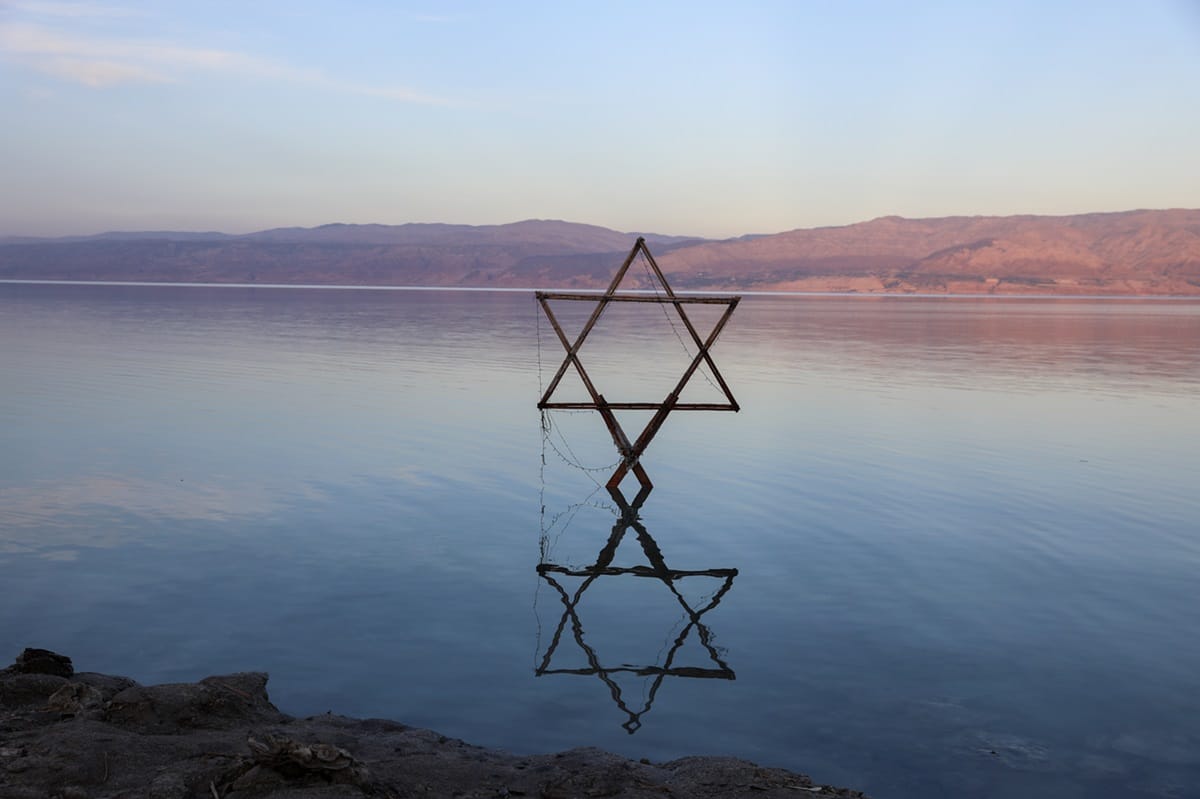
A survey held by the IDSF HaBithonistim in January 2024 shows that a whopping 91% of the Jewish population in Israel believes that the social discord that has been plaguing the country severely undermined Israel’s military deterrence towards Hamas. This finding drives home a point that Dr. Ruth Kabbesa Abramzon has been making for a while: without a strong and broad base of a shared Jewish identity, Israeli society is declining and losing its ability to withstand threats from without and within.
Dr. Kabbesa Abramzon had come to this insight back in the Second Lebanon War, when she directed a community center in the small northern township of Hatzor HaGlilit. Having to provide the members of the community with a variety of services and responses, she would often turn to government offices and agencies – many times to no avail, due to various barriers. “The tools that were supposed to be available to me on part of the State were practically useless. I began wondering whether there is a common theme to all the issues I’ve encountered, such that could shed light on these anomalies”, she says. “One possible explanation that came to mind, which at a later point I further explored academically, was that the loss of our uniting value of Zionism, as a society, had gravely impeded the civil services efficacy. In other words, once Zionism departed from Judaism, we seemed to have lost our sense of purpose and guiding principles”.
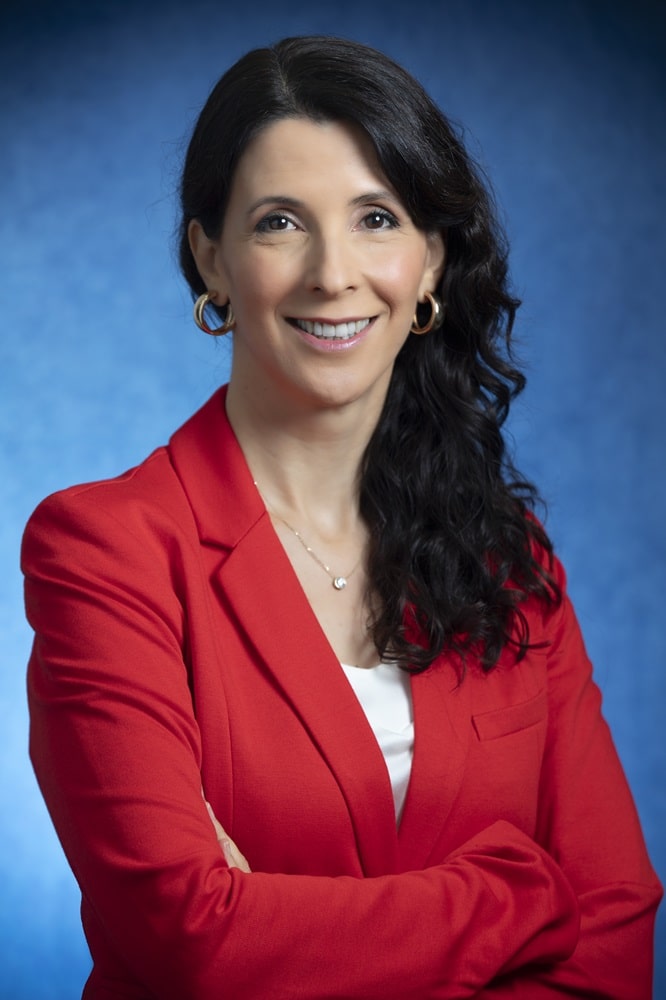
With this newly acquired understanding in mind, Dr. Kabbesa Abramzon immersed herself in social activism and academic research, driven by her desire to understand how the values of Judaism can tie into Israel’s civil policy. At a later stage she was appointed head of governance at The Joint organization, where she directed the organization’s training program for senior civil servants. She says that the role gave her a broad view of the world of governance, and allowed her to gain a deeper understanding of the ideological lacuna prevalent in Israel’s government systems. Her insights propelled Dr. Kabbesa Abramzon to further pursue the matter in the academia, authoring a doctorate in which she examines how an ethos effects Israel’s governance. Upon graduating, she wished to apply her insights through a host of social initiatives, and among others, founded “Unplugged” – a foundation aiming to expand the value of the Sabbath from its religious connotations to a national value as well.
Currently Dr. Kabbesa Abramzon focuses her efforts on social and public enterprise, with the aim of bolstering Israel’s social unity and national resilience. As part of this endeavor, she founded the “Mothers for Israel” foundation, which acts to incorporate mothers in decision-making processes in the public service. She also is a member of the IDSF HaBithonistim movement, where she plays a role in forming research-based policy recommendations and in disseminating important information to the public. She testifies that the deeper she delves into research and public activity, the stronger her conviction that the connection to our Jewish identity is an unalienable asset of our social cohesiveness, Israel’s identity and in turn – its national security paradigm. This is precisely the message Dr. Kabbesa Abramzon strives to convey.
A Jewish State is Much More Than a Jewish Majority
Dr. Kabbesa Abramzon was raised in a masorati – traditional Jewish – family, and had always been connected to Judaism. As a young person, she viewed religion mainly as a spiritual notion, but as the years went by, she had come to realize that Judaism also offers a practical toolkit for living a full and meaningful life. “The most important thing for a Jew is his or her Jewish identity”, she claims. “I absolutely do not subscribe to the notion that everybody has to be an observant Jew, however, I do maintain that one must ‘own’ one’s Judaism, learn it and apply it in a manner which is most suitable to that person. Personally, if I had to choose one value to impart on my children, beyond doubt that would be their connection to their Jewish identity, since that is their essence and that is what will endow them with the fortitude to deal with life’s challenges. Judaism – as I perceive it – is a relay race wherein each generation is responsible for passing the ‘stick’ to the next generation. Without sufficient ideological ‘fuel’ to drive the momentum – the relay stops”.
According to Ruth, a battle of identities has been raging in Israel for the past decades, and many are turning their backs on their Jewish identity in favor of a “universal” identity. “It is inconceivable that two separate camps of sorts have allegedly risen in Israel: the faith-based camp and the state-based camp”, she asserts. “Theres no such thing as a faith-based camp in the Jewish nation – we’re all people of faith through and through. One may be an atheist but still believe in one’s heritage and act accordingly. In order to reconnect as a nation we must – first and foremost – reconnect to our Jewish identity”.
Ruth explains that this war of identities is the primary source of discord in Israel’s society, as it strives to pit against each other the two pillars of the State of Israel: Judaism and democracy. “Zionism is cemented in the existence of a Jewish and democratic state in Israel”, she asserts. “It’s crucial to understand that having a Jewish state is much more than having a technical majority of Jews – it demands Jewish values as well. Therefor, when people disconnect from Judaism as a shared identity, and from the collective national feeling, we are unable to conduct a pragmatic discourse on the most vital issues of our existence, and lose the fortitude of spirit that is crucial for us to deal with our enemies who would see us destroyed”.
Unity is Indispensable to the Existence of the Nation of Israel
One of the main propellants that lead Dr. Kabbesa Abramzon to focus on the issues of national unity at the present, was the large protest that raged against the judicial reform. “When the debate on the judicial reform began, I felt obligated to intervene and stop the madness. Like most people, I believed that the judiciary calls for reform, but I also thought that any reform must be done in a manner that includes the public rather than threatens it”, she shares. “I was very active in attempting to mediate between the various groups but came to realize that some of these groups simply have no desire to find common ground. Many had an interest in driving the issue to the extreme and deepen the rift in the nation”. She explains that the slogans that were part of the protest reflect the root cause of the problem. “The first slogan was ‘To be a Free People in Our Land’ – already here, there was a flagrant omission of the next part of this verse from the national anthem – ‘Land of Zion Jerusalem’ – and by doing so, they omitted the purpose, the covenant of our raison d’etre. At a later stage, the slogan grew even shorter, becoming ‘Free in Our Land’, so now even the people were cut out of the picture
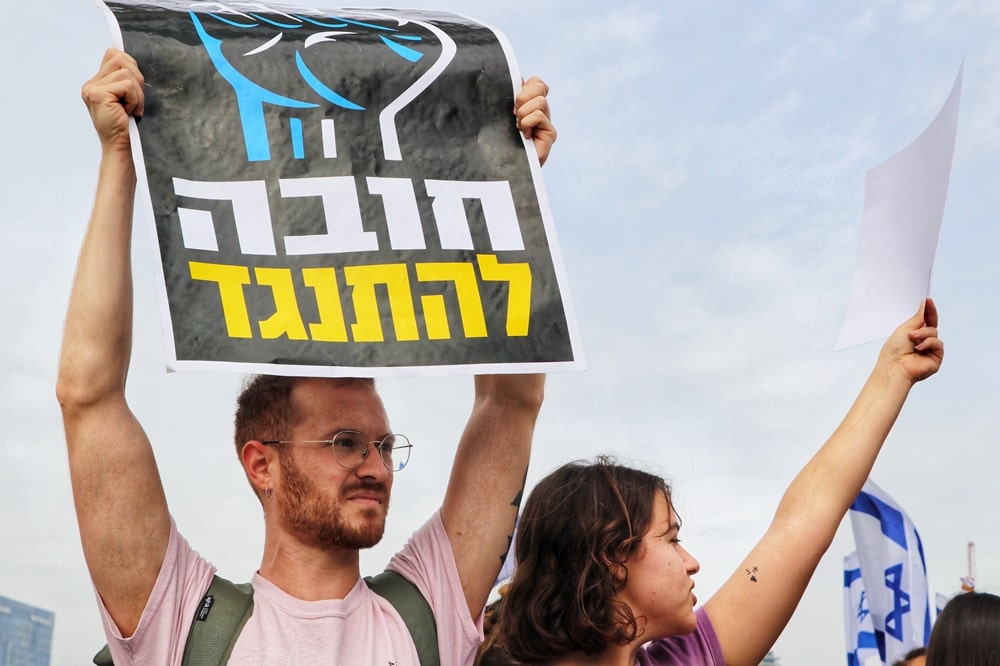
According to Dr. Kabbesa Abramzon, turning our backs on Judaism and our identity as a people undermines our most valid claim for the country’s security. “We are not here because of the Holocaust or thanks to the UN resolution – we are here because this land had been promised to us back in the biblical ‘covenant between the parts’, in which god had promised Abraham that his descendants will inherit the land of Israel. One needn’t be an observant Jew to comprehend this. Suffice it to look at our grandparents. Why have they come to Israel from every corner of the earth? What could they possibly have sought here – a Green Card? Economic benefits? No. All they had waiting for them in this land were cholera, swamp land, crises and wars, but they came because they believed that this is the promised land and the remedy for thousands of years of exile. For good reason Ben Gurion said that the bible is our charter – he also understood that without a sense of belonging to the people of Israel and the bible – we have no justification for being in this land”.
Dr. Kabbesa Abramzon has more than a few grievances towards the protests that had swept the streets of Israel around the debates on the judicial reform, but at the same time she stresses that it is imperative not to get pulled into a blame-game. Firstly, blame impedes improvement and growth, and secondly, because a calamity of such epic proportions such as October 7 is the outcome of many long-existing processes. And yet, she believes that the rift in Israel’s society and the call to refuse to report for reserves duty on part of the protest movement have played a crucial role in propelling Hamas to commit the heinous attack. “Unity is the sine qua non of the Israeli people’s existence, and history shows that every period of discord had brought calamity on the people of Israel”, she says. “Now, too, the terrorists chose to launch an attack because they believed that Israeli society is weak, and acted on the assumption that the reservists would not show up for duty. The division in the country had no doubt led to horrible harm, and the lesson to be learned is that we must not continue allowing discord to get out of hand such as it did before the war”.
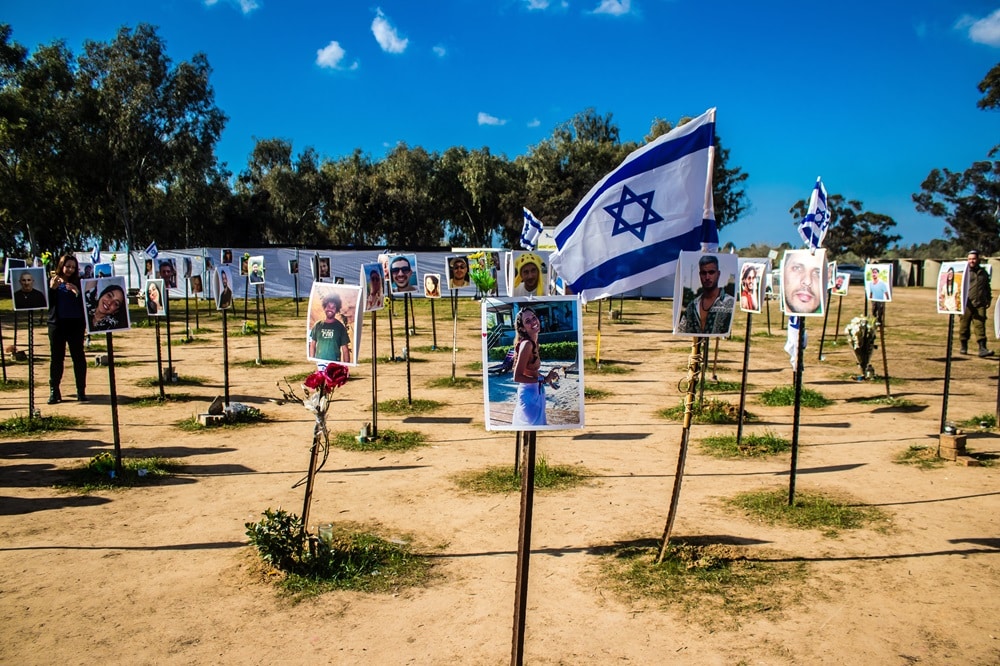
We Need Leaders of Great Stature
It seems that one of the most prevalent words floating around Israeli society in recent years is “unity”. Some believe – like Dr. Kabbesa Abramzon – that the notion is the very bedrock of our existence. However, many maintain that a society that is a patchwork of cultures such as Israel, cannot truly achieve unity. Dr. Kabbesa Abramzon is well familiar with these claims, and deems them groundless excuses. “True, we are a nation gathered from 70 languages and the connection among us all is a challenging endeavor, but it would be wrong to claim that Israeli society is structured on sub-cultures. There is one nation here, which is seeking to reconnect. We can each hold different views and beliefs and we don’t have to agree with each other all the time, but at the end of the day – like our enemies persistently remind us – a Jew is a Jew is a Jew”.
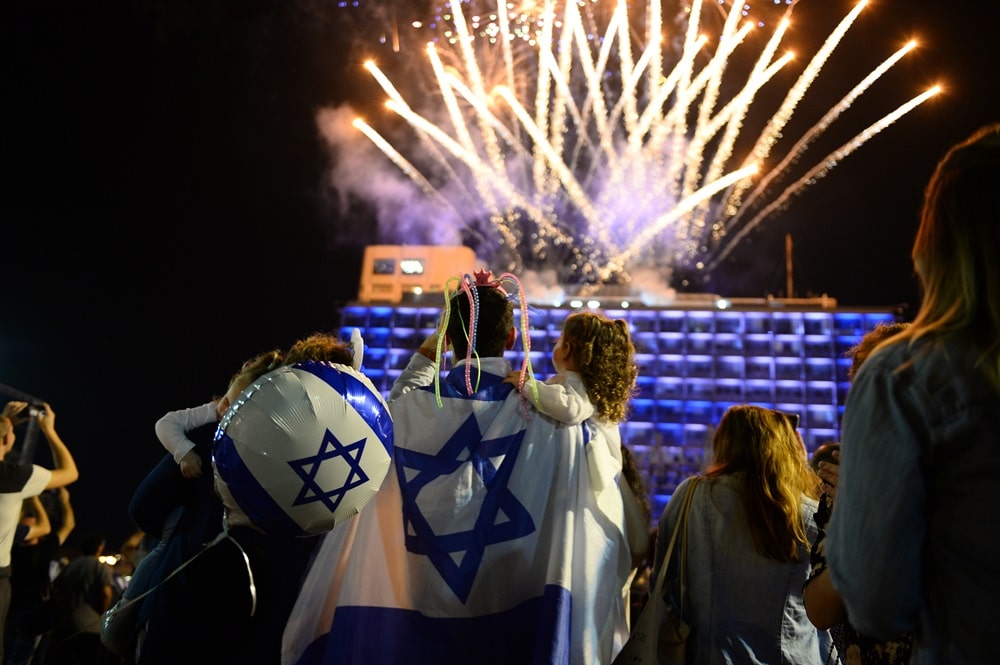
According to Ruth’s perception, unity in Israel’s society is absolutely attainable, but is under threat from two main arenas: the media and politics. “These two arenas derive their power from fomenting discord and factionalism and are actually incentivized by the social conflict”, she argues. “To remedy this state of affairs we need leaders of stature who would not hesitate to make big changes, even if it means paying a high personal price, just to put Israel back on a healthy track”.
This was part of Ruth’s motivation for joining the IDSF HaBithonistim movement. “The novelty of the IDSF HaBithonistim is its refusal to align itself with any one camp in the identity war”, she explains. “The organization fully comprehends that the security issue is mega-crucial for our existence here, and treat it with a pragmatic approach that is not restricted by a keyhole view of one identity or another”.
As part of her membership in the movement, Dr. Kabbesa Abramzon takes part in the research department’s effort to make crucial information and knowledge accessible to the public. “It’s important for me to give weight to public and media related activity as I realized that detrimental moves the likes of the Oslo Accords and the disengagement from the Gaza strip could have occurred due to the lack of representation of a wider range of stances on these issues in the media at the time, and due to the fact that the public did not have the imperative knowledge pertaining to our existence here. Even now, many citizens in Israel subscribe to cock and bull stories that their being fed, and then on the basis of this misinformation they actually support claims such as the notion that the Palestinian Authority could actually replace Hamas in Gaza. If people truly knew what the PA is, they would never lend their support to this kind of notion”.
Through her prolific activity in the IDSF HaBithonistim and “Mothers for Israel” movements, as well as her other social initiatives, Dr. Kabbesa Abramzon aspires to assists Israel’s citizens to resolve disputes in a more informed manner, hopefully through true dialogue with their Jewish identity. “My aspiration is to see a nation that knows who it is, in a country that is strong and that knows how to incorporate its values of Zionism, Judaism and democracy into its cultural and educational systems”, she concludes. “It is time to reconnect Zionism with the mother ship”.




